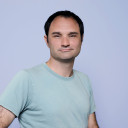Gabor M. Toth's paper won the second place in this year’s science writing competition.
Through a surprising analogy between early modern news and NASA's Apollo program, the paper explains what historical research has in common with modern navigation technology: both have to tackle the problem of fragmentation and loss. The short paper, written for children and non-specialists, also explains how digital historians solve this problem by applying mathematical models that empower modern navigation systems. These mathematical models belong to the family of Bayesian methods and are capable of reconstructing what is lost or missing.
In recent years, digital historians have successfully applied Bayesian methods to study a wide variety of incomplete historical records. For instance, Bayesian approaches have been used to study casualty rates in the American Indian War, manuscript circulation in medieval Europe, and the publication of new novels in 19th century England. Gabor M. Toth used Bayesian statistics to study handwritten news and information flow in early modern Europe.
Today, the application of Bayesian methods in digital history is still in its early phase. Thanks to its ability to reconstruct what is missing, Bayesian statistics offers a unique opportunity to uncover what has remained invisible in history. Most importantly, as Toth’s short paper illustrates, it can give rise to novel synergies between the humanities, science, and engineering.
The science writing competition is an opportunity for (almost) anyone working in science, research and innovation in Luxembourg to try out their science communication skills. Especially scientists and researchers are invited to practice their ability to communicate science by writing an article about research in Luxembourg that is understandable to anyone.
This competition is organized by DESCOM, a project at the University of Luxembourg that offers training in science communication for doctoral candidates, in collaboration with science.lu from the Luxembourg National Research Fund (FNR).



